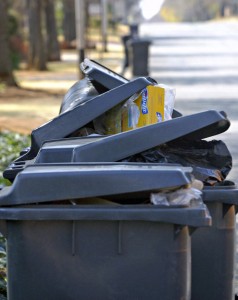By Khanyo O Mjamba
Excluding Phuza Thursday, I had other reasons for liking the 5th day of the week. The most important of these being that of my municipality’s sanitation services’ weekly collection visits. Every Thursday morning, bearing the formidable mass of black plastic, men and women of complex odours and bright orange overalls hop on and off moving trucks to collect waste. That which I, an unwitting consumerist, leave behind is left for others to deal with.
As with all things too good, an adverse truth presented itself. You see, I was not the only one anticipating the day. For some, Thursday brings about an opportunity to eat.
The downside to being a product of a modest but sheltered upbringing can cause the hunger of the less fortunate to be only just a little more than a vexing inconvenience at most times. In a country where approximately 11-million citizens are food insecure, the reality of this matter presents an ethical situation.
You see, it occurred to me that this phenomenon is something I had not been completely oblivious to. The urchins at the robots with their placards describing their misfortune, for example, brought about a touch of guilt, annoyance and some sympathetic pangs in the belly – even though I never look at them in the eyes when I claim to not have any change.
The whole thing became an issue when the waste bags outside our gate were feverishly filleted, contents strewn all over the front of the wall. I returned from my day job last Thursday to find a violent scene of crusts, cartons, packets and paper strewn all over the front yard. To say I was annoyed would be an understatement.
What was it that nagged me so much about this, though? Is it that my relatively comfortable lifestyle had its bowels exposed? Was it anger at broken promises about poverty eradication and housing? Or perhaps, it was an accusatory finger pointing at my own chest for my own apathy?
There the conundrum faced me: What bothers me more – the mess they leave behind or the poverty that compels them to survive this way? I mean, it’s easy to take the high road and blame the system and its many flaws when I do nothing.
As I was bent over, collecting the debris, conflicting thoughts ran through my mind.
The first one toyed with ideas of a deterrent, to save myself the embarrassment and frustration that can come from this possibly becoming a Thursday ritual. Perhaps I should arrange the garbage in a fashion that would be inedible no matter what the demands of hunger may be – a slideshow of bulging refuse bags doused in household disinfectant played in my mind.
The second option came out of sympathy and grew inversely proportional to the initial sentiment. Maybe I could render the ‘food’ more accommodating, laying it out in its different categories. It was a fleeting thought but, as I tied the refuse bag, I imagined that it wouldn’t be an easy choice to subject oneself to the various implications and risk of ransacking bins for survival, more so when there are offspring to feed.
I conceded out of acknowledging that some people fall under the category ‘presently disadvantaged’ and there was no way that we, the previously disadvantaged (and the ‘never disadvantaged’), could with good conscience prevent the ransacking of our rubbish bins for subsistence. Something about this whole charade inspired a flicker of disgust within me, disgust at what I represent. Well, primarily, I was pretty chuffed with myself but something has gone terribly wrong here. The media bombards us with flowery words from the country’s leadership about hunger despite their own actions of feeding themselves with the bread of the previously disadvantaged.
Thursday mornings now involves me sorting through the bruised apples, expired slices of bread, soured milk, full cream cake icing, chicken skins and bones, dregs in fruit juice bottles, bacon rinds, green and furry cheese, and the bones of lamb chops with traces of meat on. I hope this generosity persists.
Khanyo O Mjamba is a freelance writer and communications student. He lives in East London.




